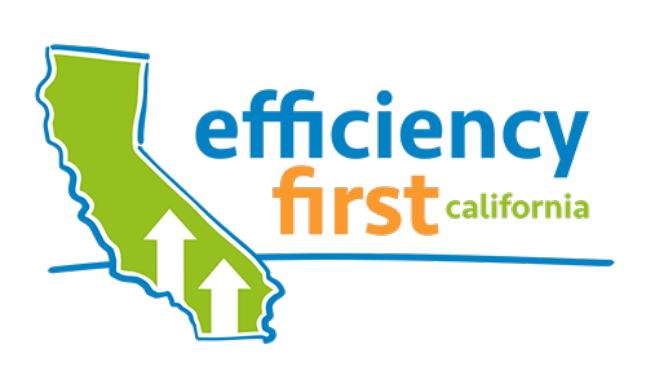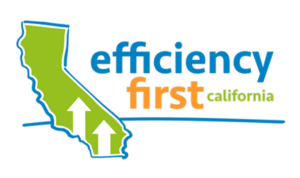Posted by Charley Cormany, EFCA Executive Director
No it’s not married or money or mad it is the word modeled. More specifically it is the process of using models to predict reality or future outcomes.
Our industry has relied on energy models for years to determine how to achieve energy savings. The dependence on modeling has had a serious negative impact on the industry. We should consider how we use this tool – that’s right it is just a tool – like others we have at our disposal. Modeling can be useful or it can simply compound the problem at hand, much of it depends on the expectation of the outcome.
Dry Climate Forum
I recently attended the sixth annual Dry Climate Forum on home performance in Yosemite. The Dry Climate Forum is similar to other industry conferences with some very definite distinctions. It’s a three-day event with the days filled with presentations and tons of great information, like other events, but that’s where the similarities end.
The Dry Climate Forum is significantly different from other conferences for many reasons. The first and most influential reason is that it is presented by an all volunteer staff who do it for the love of the industry, not for profit. If you have ever produced an event like this you recognize this is no small feat so “hats off” to the presenters. At many other conferences the best conversations happen after the presentations are over, the organizers recognized this fact and provide an evening “symposium” with an open bar as part of the forum. Honestly some of the best information sharing happens after dinner at the symposium.
Impressive list of DCF participants
The attendees list reads like a who’s who of the home performance industry smattered in with some great minds from the likes of the Lawrence Berkeley National Labs and other academia. The brain trust in the room is staggering. There are a handful of manufacturers present but unlike other events, they are strongly discouraged from hawking their wares. In fact, they are not allowed to have any form of sales pitch and are invited to help share information, most of it technical in nature. Likewise, discussion of incentives and other “programs” is also prohibited. What you soon learn is this forum is all about facts.
Perhaps the most defining aspect of the Dry Climate Forum is that all of the information presented must be based on measured data. Modeling is a dirty word at Dry Climate and if you use it you will likely have something thrown at you from across the room, no joke.
Assumptions, not facts abound
Why such an aversion to modeling, especially when you consider that many folks in the room have worked to develop the standards and assumptions that the models are based on? The reason is that models are dangerous and no matter how great they may appear they all must rely on assumptions at some level. There are assumptions built in by the software designers that help streamline the data entry and calculation algorithms. There are assumptions made by the user when inputting data. There are assumptions made by the end user when interpreting the outcome of the results. All of these assumptions add up and combined they have a significant effect on the accuracy of the data, more often than not the models are wrong.
So the question is if we can’t rely on modeling to predict outcomes what can we do? The Dry Climate Forum presents all of it’s information based on measured results. This means you try something, measure the outcome, and then you report the results based on your real world observations. This “measured-only” factor makes the forum a place where real knowledge is shared amongst some of the greatest minds in the industry.
Questions answered
What does this mean in a practical sense? It means you can attend and find out if some of the cutting edge technologies are actually delivering the savings claimed by the manufacturers. As an example, perhaps you are considering installing a mini-split heat pump instead of a conventional heat pump, how will you know which will really save energy once it is installed? Currently, your only tool is to rely on the manufacturer’s rating of SEER or EER or HSPF when comparing the two options. As we know manufacturer’s have been known to shift the results of performance-based tests in their favor. Anybody heard abased out the Volkswagen TDI diesel? At Dry Climate this year there was a study that tracked the two heat pump technologies side by side and measured how they actually performed when installed, this is the only way to truly know what works.
This year’s forum included information on heat pump water heaters, mini-split heat pumps, lighting, low-cost Zero Net Energy housing built by students, water use, measured indoor air quality, human behavior, the list goes on and on. The forum is not a place for theory or guesstimates it is where the rubber meets the road. It is a rich source of cutting edge information.
Human behavior needs to be considered
As we move into a performance based new paradigm we will soon realize that behavior has to be part of the equation. There were a couple of studies presented that demonstrate how people actually behave in their homes. Some of the items monitored were related to energy use, others were based on water consumption and other topics. The bottom line is we need to understand how buildings work and how the people who occupy the buildings behave in order to achieve Zero Net Energy. Without the sharing of information this will be incredibly difficult to do.
Looking forward
As we move to build Zero Net Energy buildings and retrofit our existing housing stock we need to use proven methods with measurable results. That said, predicting how buildings will behave and what solutions will work becomes very difficult when you are designing for ZNE, a building that promises it will produce as much energy as it consumes. In some situations, it is clear that modeling will be required. It’s obvious that you will have trouble building large multi-family buildings using real world data for all of the potential energy solutions. This means we need to use the measured data we have to help improve the models we will be using. As a matter of fact several folks at the conference are working hard to do this as we speak.
Being able to learn from others mistakes and successes is a huge advantage and is a key component of the success and value of the Dry Climate Forum. One of the key foundations of the forum is the sharing of knowledge. Specifically, hard earned tested and verified knowledge. Some feel that this is “giving your secrets away” but I think we all realize that the more we share information the better off our industry will be.
For more information or to become a sponsor of the Dry Climate Forum, please visit their website at www.dryclimatehomeperformance.com.


